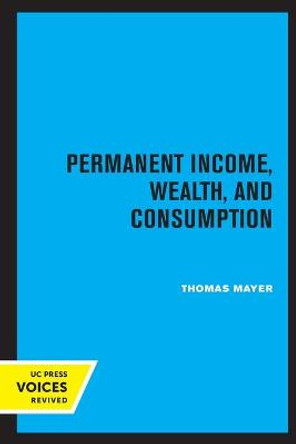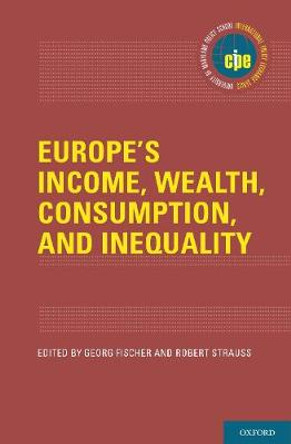Description
"Turn to any page of Income and Wealth and you will be blown away. You will find something important about income and wealth that you didn't know and would probably want to know. Once you read this book, you'll realize what stunning economic progress the average American family has made. You'll also realize that the main way to get wealthy is--are you ready?--to work." -- David R. Henderson, Research Fellow, Hoover Institution, author of Making Great Decisions in Business and Life "Economic literacy is an essential condition for our democracy to work. Only an educated public can make sense of the myriad of economic issues that characterize our public debate, ranging from the collapse of private pensions to the impact of outsourcing on our job markets. This series constitutes a significant step towards the achievement of this goal. Written by eminent professionals and experienced practitioners, each of its seven volumes renders complex issues easy to assimilate without sacrificing nuance or controversy. Aimed at the general public, the authors succeed in bringing to everyday life the substance of most important economic agents and forces." -- Jos^D'e R. de la Torre, Dean, Alvah H. Chapman Jr. Graduate School of Business, Florida Interntional University
About the Author
Alan Reynolds is a Senior Fellow at the Cato Institute and was formerly Director of Economic Research at the Hudson Institute. He served as Research Director with the National Commission on Tax Reform and Economic Growth, as advisor to the National Commission on the Cost of Higher Education, and as a member of the OMB transition team in 1981. His studies have been published by the Organization for Economic Cooperation and Development, the Joint Economic Committee, the Federal Reserve Banks of Atlanta and St. Louis, and the Australian Stock Exchange. Author of The Microsoft Antitrust Appeal (2001), he has written for numerous publications since 1971, including The Wall Street Journal, The New York Times, National Review, The New Republic, Fortune, and the Harvard Business Review. A former columnist with Forbes and Reason, his weekly column is now nationally syndicated.
Reviews
Reynolds challenges many so-called myths held by academics, columnists, and public affairs junkies concerning inequities in the recent growth of individual income and wealth in the US. Beginning with a useful, lucid-to-the-general-reader chapter on concepts and measures, this book is intended to show that the growing gap between the rich and the poor in the US is mainly the result of the number of workers in households and their age and education, and that the so-called disappearance of the middle class is more statistical than actual. In fact, Reynolds contends that since 1973 total labor compensation has been increasing and that the distribution of consumption expenditures by income class points to a reduction in inequality as compared with 1986. A critical chapter refutes recent literature concerning huge increases in income going to the top 1 percent of taxpayers as being due merely to changes in tax laws. Reynolds also addresses the minimum wage, taxes, immigration, international trade, and globalization. The book excels in charts and tables, glossary of terms, and references, including online resources. An extremely useful addition to the literature in the ongoing conservative-liberal debate on the distribution of US income and wealth. Highly recommended. General readers; academic audiences, upper-division undergraduate and up; professionals. * Choice *
Income and Wealth is stunning in its revelations and its deflations of popular Democratic superstitions....Reynolds, a senior fellow at the Cato Institute, is an economist of acute precision. For years he has defended the capitalist way of doing things, and this volume is a high tribute to his championship of basic American ideas. * National Review Online *
Alan Reynolds has produced a most important examination of one of the dominant political myths for this current two-year run-up to the 2008 presidential election....Mr. Reynolds argues persuasively in Income and Wealth that poverty and wealth in America are not directly related to each other; the poor are not poor because of the well-to-do. Moreover, both the upper one percent and lowest 10 percent of incomes are affected by unrelated dynamics that have nothing to do with the Democratic nostrum of income redistribution via tax remedies--Robin Hood-onomics....In easily accessible prose, he shows us how the two Americas crowd is messing with our minds with its statistical fabrications....Whether the truths revealed by Mr. Reynolds will silence the two Americas myth will depend on how widely his book gets circulated in this coming year. The truth may set us free after all. * The Washington Times/The American Spectator *
[E]xplodes much of the downbeat economic conventional wisdom. * The Salt Lake Tribune *
The election season, once again, brought up the myth that Americans are worse off because inequality of income has been increasing in the United States. Myths are harmless in literature. But if Democrats, like Rep. Nancy Pelosi, start using it as evidence for raising taxes when the new Congress reconvenes, there is potential for real damage to the economy and to our living standards. Cato Institute senior fellow Alan Reynolds' new volume Income and Wealth assembles facts to explain and understand this myth, using figures from the Statistical Abstract of the United States. Reynolds also provides a clear guide to the countless academic studies on the subject. * New York Post *
As part of a series aiming to improve economic literacy and decision- making, this volume is meant for general readers, high school and college students, or as a review for graduate students and those in business. Reynolds provides a guide to the growth and distribution of income and wealth in the US. He addresses statistics purported by the press and economists, arguing that these perspectives are often influenced by a misunderstanding of basic concepts and measures. He then explains those concepts and measures, as well as work and income, the idea that the middle class is declining, and claims that average wages have not increased, and includes a discussion of the income of the top one percent. He discusses CEOs and stock options, the distribution of wealth, using consumption as a measure of living standards, and recommendations to fix wage or income inequality. * Reference & Research Book News *
Awards
Winner of The National Chamber Foundation's Top Ten Books that Drive the Debate 2006.
Book Information
ISBN 9780313336881
Author Alan Reynolds
Format Hardback
Page Count 248
Imprint Greenwood Press
Publisher Bloomsbury Publishing Plc
Weight(grams) 510g








